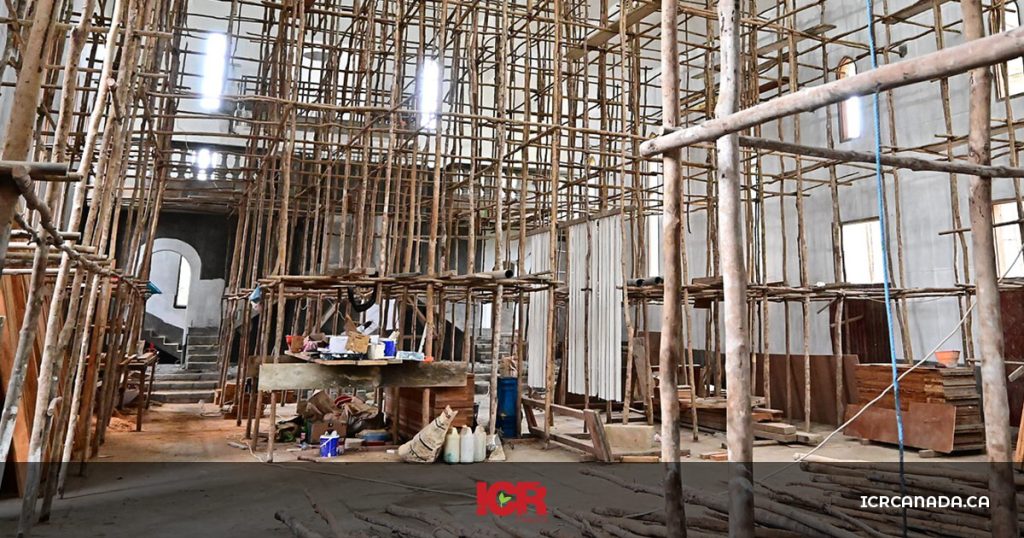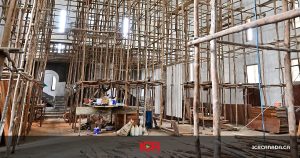Challenges and Responses to Christian Persecution in Indonesia

Christian communities in Indonesia continue to face significant challenges, particularly in regions where religious intolerance is growing. While Indonesia is constitutionally committed to religious freedom, reports of opposition to church establishments and religious activities have raised concerns among human rights organizations and interfaith leaders. A recent case in South Sulawesi illustrates the increasing difficulties faced by Christians seeking to practice their faith openly. The Toraja Christian Church of Lanraki, which has been active in Paccerakkang village for two years, encountered unexpected resistance when attempting to construct a larger worship facility. This incident highlights the broader struggle for religious minorities in Indonesia and raises questions about the enforcement of constitutional guarantees of religious freedom.
Opposition to Church Construction: A Case Study
The Toraja Christian Church of Lanraki, located in Biringkanaya Sub-District, had been worshipping in a modest home for two years before deciding to expand into a dedicated church building. The application for a construction permit was submitted in May 2023 with initial support from local residents. However, opposition emerged in February 2024 when a banner appeared near the Makasar local police housing complex, stating that Muslim residents of the area strongly opposed the church’s construction.
Church representatives expressed confusion over this sudden opposition, as they had previously coexisted peacefully with the surrounding community. The banner, placed by unidentified individuals, was later removed by local residents unaffiliated with its installation. Despite this, the incident has sparked concerns about religious intolerance and the pressures faced by Christian congregations when seeking to establish places of worship.
Legal experts and religious leaders have condemned the act, emphasizing that such opposition contradicts Indonesia’s constitutional commitment to religious freedom. The Makasar Chapter of the Indonesian Legal Aid Foundation warned that such public displays of intolerance could incite inter-religious conflict, urging authorities to take appropriate legal action against discriminatory actions.
Government and Community Response
Local authorities and interfaith organizations have responded to the controversy with calls for tolerance and dialogue. The head of Biringkanaya Sub-District reaffirmed the constitutional guarantee of religious freedom and emphasized the need for mutual respect among different religious communities. Efforts are underway to mediate the dispute through the Interfaith Cooperation Forum (FKUB), an ad-hoc interreligious body that facilitates dialogue between religious groups.

Christian persecution in Indonesia is increasing
An FKUB representative visited the proposed church site and expressed surprise at the opposition, noting that the location is in a vacant area with minimal residential presence. The official stated that further field visits and mediation efforts would be conducted to resolve the issue peacefully. Meanwhile, religious leaders, including Pastor Nicky Wakkary of the Pentecostal Church in Indonesia, have urged the congregation to remain steadfast in their faith while also engaging with the local community to foster better relationships.
Despite these efforts, religious minorities continue to face bureaucratic and societal hurdles in establishing places of worship. Government intervention is crucial in ensuring that local authorities enforce religious freedom protections effectively and prevent discriminatory practices that hinder the rights of minority faith groups.
Broader Implications for Religious Freedom in Indonesia
The challenges faced by the Toraja Christian Church of Lanraki reflect a broader trend of increasing religious conservatism and intolerance in Indonesia. While the country has long been known for its religious diversity, a rise in conservative Islamic ideologies has led to heightened scrutiny and restrictions on Christian evangelistic activities. This trend raises concerns about the country’s commitment to pluralism and the enforcement of religious rights.
The Setara Institute for Democracy and Peace has noted that religious freedom violations and intolerance have not been prioritized by the new administration of President Prabowo Subianto. As Indonesia’s political landscape evolves, the protection of religious minorities will remain a critical issue for both domestic and international observers.
Christian communities, which make up approximately 11.43% of Indonesia’s population, face particular risks when engaging in evangelistic outreach. The presence of Islamic extremist groups and increasing societal pressure have made it more difficult for churches to operate freely. Ensuring religious freedom will require not only stronger legal enforcement but also proactive efforts from civil society organizations and interfaith leaders to promote dialogue and tolerance.
The case of the Toraja Christian Church of Lanraki underscores the ongoing struggle for religious minorities in Indonesia. While the country’s constitution guarantees religious freedom, incidents of opposition to church construction and other restrictions highlight the challenges faced by Christian communities. The response from local authorities and interfaith organizations provides some hope for resolution, but broader systemic changes are needed to protect religious minorities effectively. As Indonesia navigates its religious and political landscape, upholding the principles of tolerance and pluralism will be essential in ensuring a truly inclusive society.
